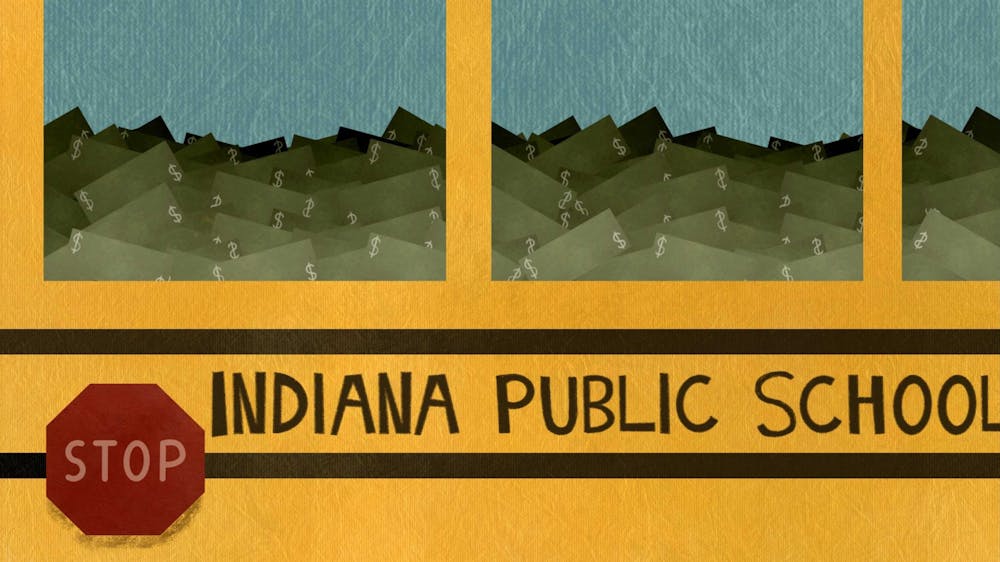Indiana lawmakers gave final approval Thursday to their new two-year budget for 2022 and 2023. Bolstered by an additional $3 billion in federal COVID-19 relief funding, Democrats and Republicans came to an abnormally bipartisan agreement on the allocation of funds.
While it’s not mistakable for perfect, it’s certainly the best budget in recent memory, particularly when it comes to public education. And the fact that increased funding for public education has been at least partially enabled by President Joe Biden, whose presidency I have been rather critical of thus far, is not lost on me.
Indiana’s 2022-23 budget allocates $1 billion of the federal relief funding toward K-12 education and creates stipulations on that money.
K-12 funding has been drastically increased compared to what was expected in the budget. The boost in education funding raises the total amount allocated to K-12 public education to about $16 billion combined over those two years, with just over a 4% increase in spending each year. A significant portion of this boost — $600 million — will go to increasing the salaries of K-12 teachers. This is essential because Indiana’s average teacher salary lags well behind neighboring states.
The budget dictates that school districts spend at least 45% of the tuition support money on teacher pay, a bar that more than 100 Indiana districts currently do not clear. Additionally, schools are required to submit an explanation to the state if teachers are not paid at least the minimum of a $40,000 salary. The budget also mandates that teacher pay cannot be decreased from year to year.
This is all really, really good for teachers and public education in Indiana.
In December, the Next Level Teacher Compensation Commission recommended that Indiana schools raise the average teacher salary from approximately $51,000, which is 18% below the national average, to $60,000 to match other states in the area. The budget appears to be a genuine effort to rectify the situation.
“This is a good day for Indiana’s students, educators and communities,” Indiana State Teachers Association President Keith Gambill said Tuesday in a public statement. “Today’s announcement by lawmakers and the governor that the proposed budget will fund the governor’s teacher compensation report is to be celebrated.”
School voucher funding was also increased, which frustrated Democrats. Vouchers allow a portion of the state-funding a public school corporation receives for each student to be used to pay for a qualifying student’s tuition at a private school. Indiana has one of the largest school voucher programs in the nation.
"These are huge new great ideas in this budget," said Sen. Jean Breaux, D-Indianapolis, on the State Senate floor. "But that doesn't change the fact that we're making traditional public education a step child to vouchers at an alarming rate."
Breaux was one of only five lawmakers in either chamber to vote against the budget.
Private school education is a tremendously flawed concept that creates a huge class divide. A voucher system frames private education as a thing to be desired, creating an inherent dichotomy between the wealthy and the rest. Private schools take their funding from public schools, functioning like a privileged leech.
But I can live with an expanded voucher program in this budget. Republicans have a supermajority in both the Indiana House of Representatives and Senate, so increased public education funding in any form, caveats included, is a miracle.
Noah Moore (he/him) is a sophomore studying psychology, theater, international studies and French. He is a Wells Scholar, representative in Student Body Congress and member of the Singing Hoosiers. Noah enjoys listening to music and hiking around Lake Monroe.






